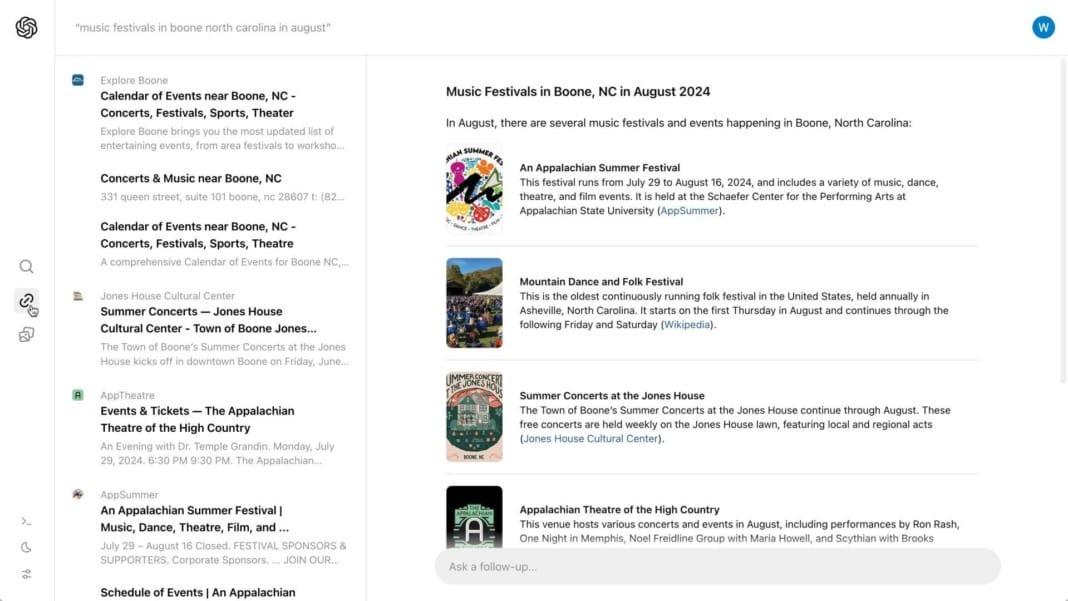OpenAI has officially announced the launch of SearchGPT, its long-anticipated search product. This new feature is being released as a “temporary prototype” and will initially be available to just 10,000 users and publishers.
The ultimate goal is to integrate the best aspects of these new search features directly into ChatGPT. So, what exactly is SearchGPT, and how does it work?
How SearchGPT works
SearchGPT responds to your queries using OpenAI’s powerful AI models combined with real-time information pulled from the web. When you ask a question, SearchGPT provides an answer that links to relevant sources within the text. It also shows additional sources beneath the answer for more comprehensive information.
OpenAI describes SearchGPT as a prototype that leverages the strength of its AI models to offer fast answers with clear and relevant sources. It aims to be a more streamlined and efficient version of what OpenAI has been doing since the launch of GPT-4, known as “browse mode.”
The interface of SearchGPT starts with a search box where you enter your query. After submitting your question, you receive an answer with embedded links to sources, plus a sidebar displaying additional results.
Benefits for publishers
OpenAI also offers a way for publishers to manage their presence in SearchGPT. This feature gives publishers more control over the content appearing in search results. It’s important to note that SearchGPT is focused solely on search and is separate from training OpenAI’s generative AI foundation models. Even if a site opts out of generative AI training, it can still appear in SearchGPT’s search results.
OpenAI has plans to enhance SearchGPT further, particularly in areas related to local information and commerce. The company is working on making searches more effective and user-friendly in these specific domains.
If you’re interested in trying out SearchGPT, you can join the waitlist to become one of the prototype’s initial users.
OpenAI’s journey to creating a search product has been in the making for some time. The first hints about this project surfaced in February. Speculation increased in May, although the launch was delayed in favour of releasing GPT-4. Recently, the CEO of The Atlantic confirmed that OpenAI was indeed working on a search product.
Why it matters
The evolution of search technology is significant, especially when considering the changing landscape of how we access information. Former Google CEO Eric Schmidt said, “The next Google won’t do what Google does.” OpenAI’s CEO Sam Altman seems to echo this sentiment, aiming to create a user-friendly search experience that combines large language models (LLMs) and search functionality without overwhelming users with ads.
While it’s too early to tell if ChatGPT will become a serious competitor to Google Search, it’s a development worth watching. This story will undoubtedly unfold over the coming months and years as OpenAI continues to innovate and refine its search capabilities.





